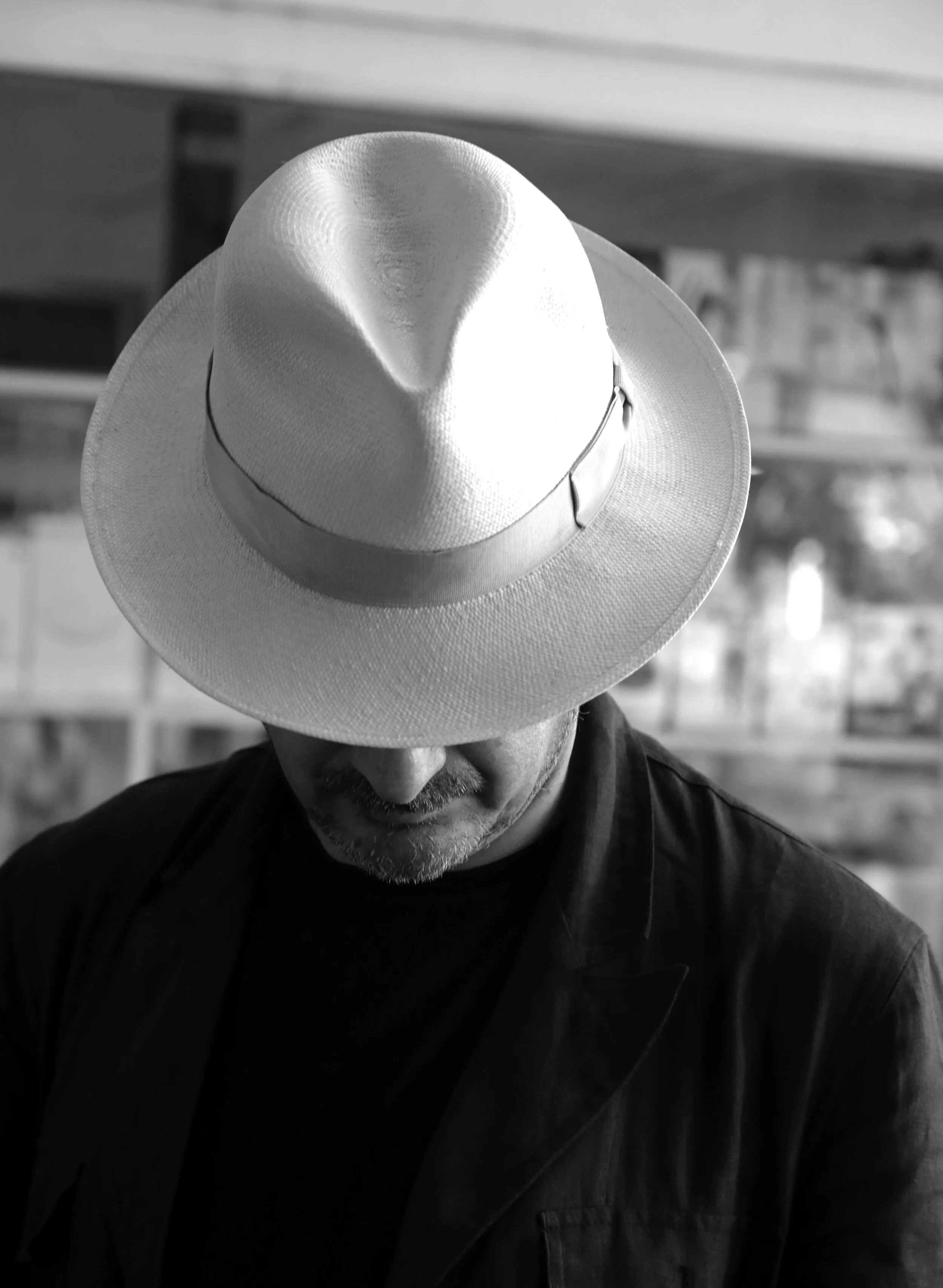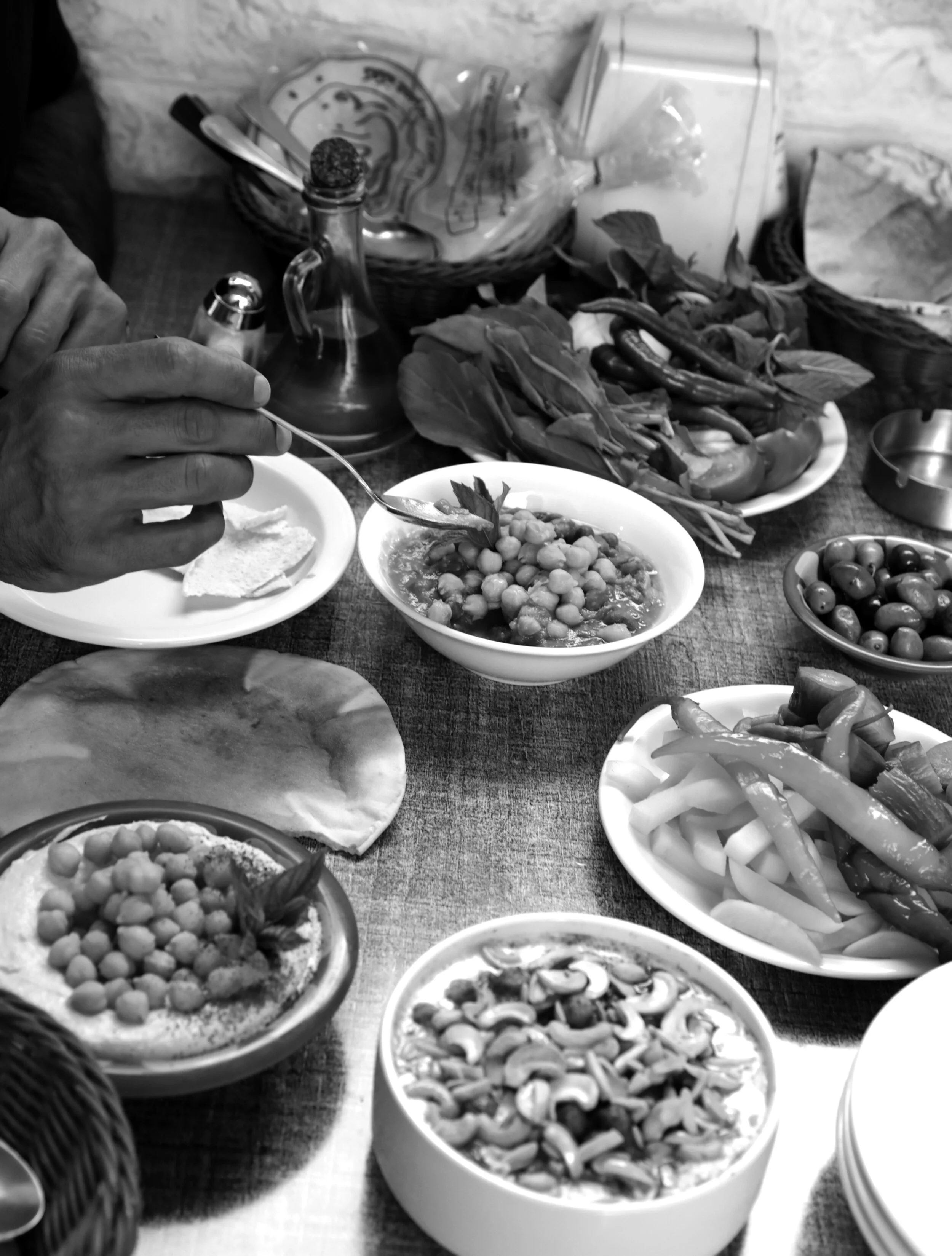Tawlet Beirut - Kamal Mouzawak
Photography by Mart Engelen
Text and Interview by Gherardo Gaetani
Lebanon has been the gateway to the Middle East since the time of the Phoenicians, that great civilization of traders. A variety of infuences borrowed and assimilated from different cultures has made Lebanon the gourmet cradle of the Arab world. Its food is the best expression of Middle-Eastern cuisine. In addition, its people are extremely hospitable and express their generosity and lust for life through legendary dinner parties at every opportunity: practice makes perfect. I believe the best way to experience a culture is through its food and in Lebanon there is plenty to discover. The quality of food in Beirut is excellent and even simple dishes like the chicken shawarma at BouBouffe, the falafel at Sahyoun or the hummus or foul at Le Professeur are a testament to that. My mouth is watering as I write. And if there is one man to see in Beirut, it’s Kamal Mouzawak.
Kamal Mouzawak, Beirut 2019
Lebanon has been the gateway to the Middle East since the time of the Phoenicians, that great civilization of traders. A variety of infuences borrowed and assimilated from different cultures has made Lebanon the gourmet cradle of the Arab world. Its food is the best expression of Middle-Eastern cuisine. In addition, its people are extremely hospitable and express their generosity and lust for life through legendary dinner parties at every opportunity: practice makes perfect. I believe the best way to experience a culture is through its food and in Lebanon there is plenty to discover. The quality of food in Beirut is excellent and even simple dishes like the chicken shawarma at BouBouffe, the falafel at Sahyoun or the hummus or foul at Le Professeur are a testament to that. My mouth is watering as I write. And if there is one man to see in Beirut, it’s Kamal Mouzawak.
Gherardo Gaetani: So many favours and so much variety in such a small country. Why is this?
Kamal Mouzawak: Such a small country and such a diversity of geography frst. A Mediterranean coastal plain 200 km long and 50 km wide. Then the frst mountain range, Mount Lebanon, that rises to 3,000 metres. Then an inland plain, the fertile Bekaa Valley. Then a second mountain range, the Anti-Lebanon, which has a different geography and climate and, therefore, agriculture. This has translated into different cuisines and shows a diversity of origins, religions and people. The country is a crossroads of different worlds between the Mediterranean and the inland areas.
GG: Souk el Tayeb seems to be more than a farmers’ market. Is it more than a place to buy fresh vegetables?
KM: I never cared just about the products or just about the food. It was always about a way to fnd common ground between people who have different origins, politics or religions. We all live on the same land, produce the same agriculture and have the same cuisine. It’s about looking beyond differences for the similarities. So “make food not war”. Souk el Tayeb has different expressions, as a farmers’ market, as a tawlet and as a beit, but it’s always seen as a human development project not just a restaurant or market.
GG: Farmers have been looked down on for too long. How can we help them?
KM: Peasant, paysan, fellah (Arabic) seem like bad words in most, perhaps all, languages in the world. I don’t know why, when they are one of the best contributors to life. We focus on developing cities and forget about rural areas and about developing and supporting farmers and producers who are responsible for feeding those cities. Fair pay and, most importantly, proper recognition push the farmers to do more and better. And push their children to do the same instead of running away from rural areas.
GG: Why do you use women in your kitchens?
KM: I don’t use them! Souk el Tayeb, as a farmers’ market, is for farmers, producers and cooks—men and women. When we developed Tawlet, it was about home cooking, domestic cuisine, a forgotten dimension of food. When we think about food, it’s about gastronomy
(by male chefs) or the agro-industry and we forget that we mainly eat at home and it’s the women who are the guardians of homes and who have perpetuated traditions of cuisine and food since forever. They have incomparable knowledge and savoir-faire. Adding to this, they bear life; they are pregnant for nine months and then give life and know better than anyone how to nurture and feed it.
GG: Working in kitchens is not such a glamorous job. How does Tawlet empower these women cooks?
KM: Glamour is about recognition! When you are no-one, a second- class citizen, merely regarded as a housewife or a food provider. But when you are the guardian of traditions, it’s a different attitude and a different point of view for looking at cooks and women.
GG: Are you seeing any interest from the younger generations to keep these culinary traditions and farming practices alive?
KM: Well… look at you to start with! You have nothing of the cook or farmer but you’ve got into it! The more we go virtual and become isolated, the more we need to understand life, see it grow. Discover the metamorphosis of cooking, of making bread, of fermenting grains to produce beer, etc.… a real, authentic life. The new generations look at working in farming and cooking in a new way. They are proud of what they do, happy to be back to the land and in the kitchen.
GG: You are doing interesting pop-up restaurants. Will you be opening a Tawlet abroad?
KM: My dream is to have a Tawlet everywhere. A mum’s kitchen to discover the real taste of a place, through simple homely, regional, traditional cooking.
Copyright 2019 Gherardo Gaetani




